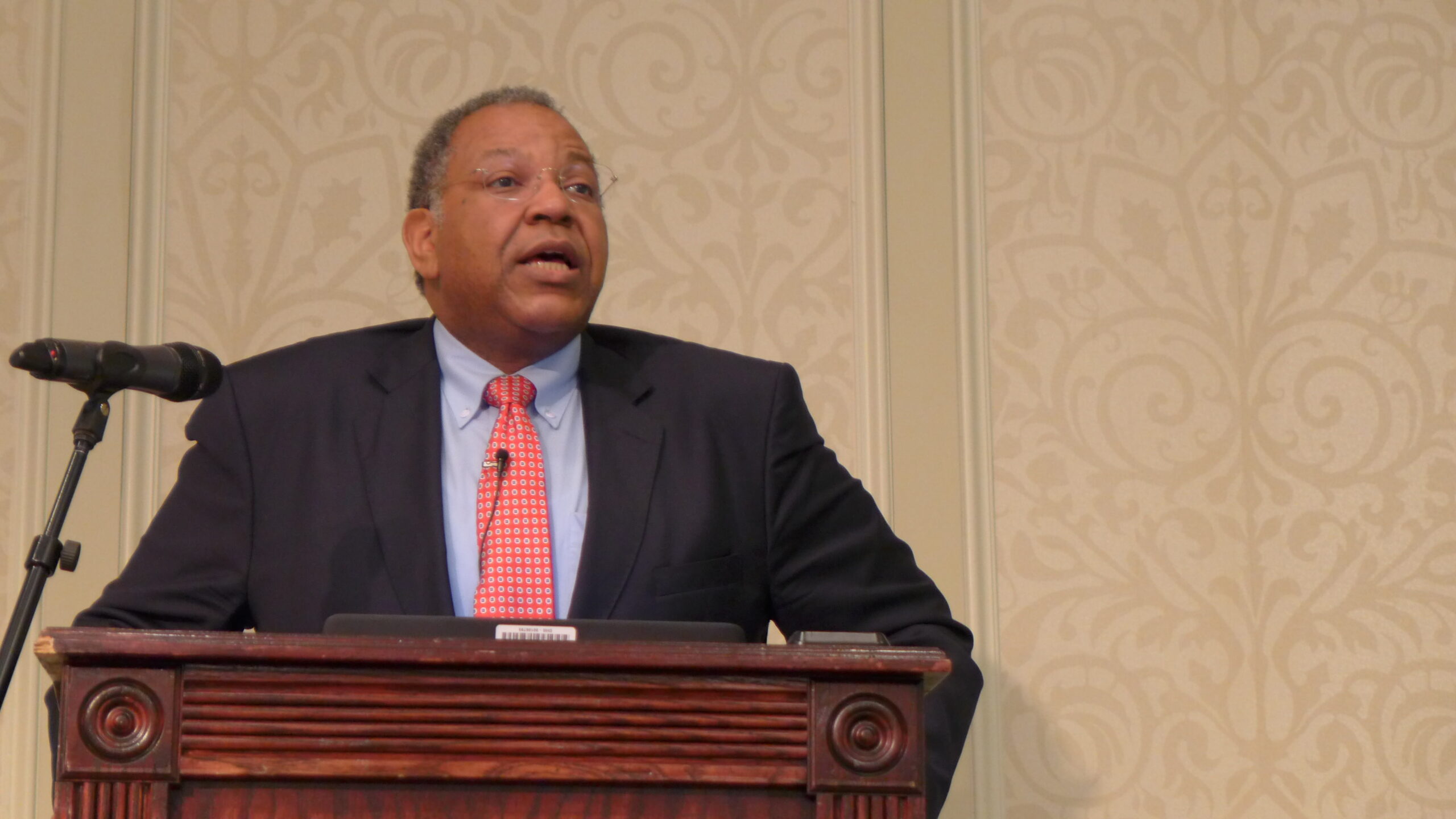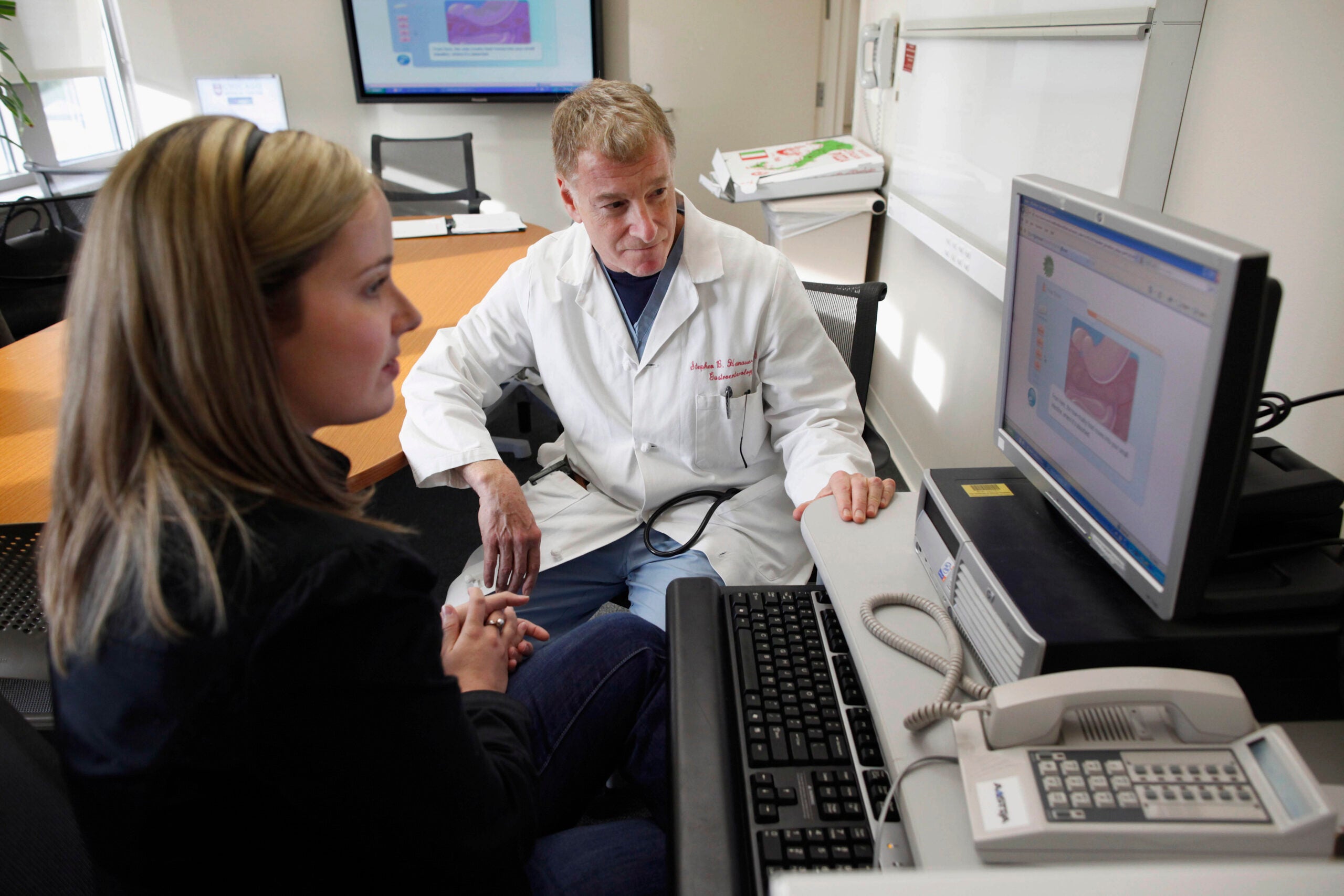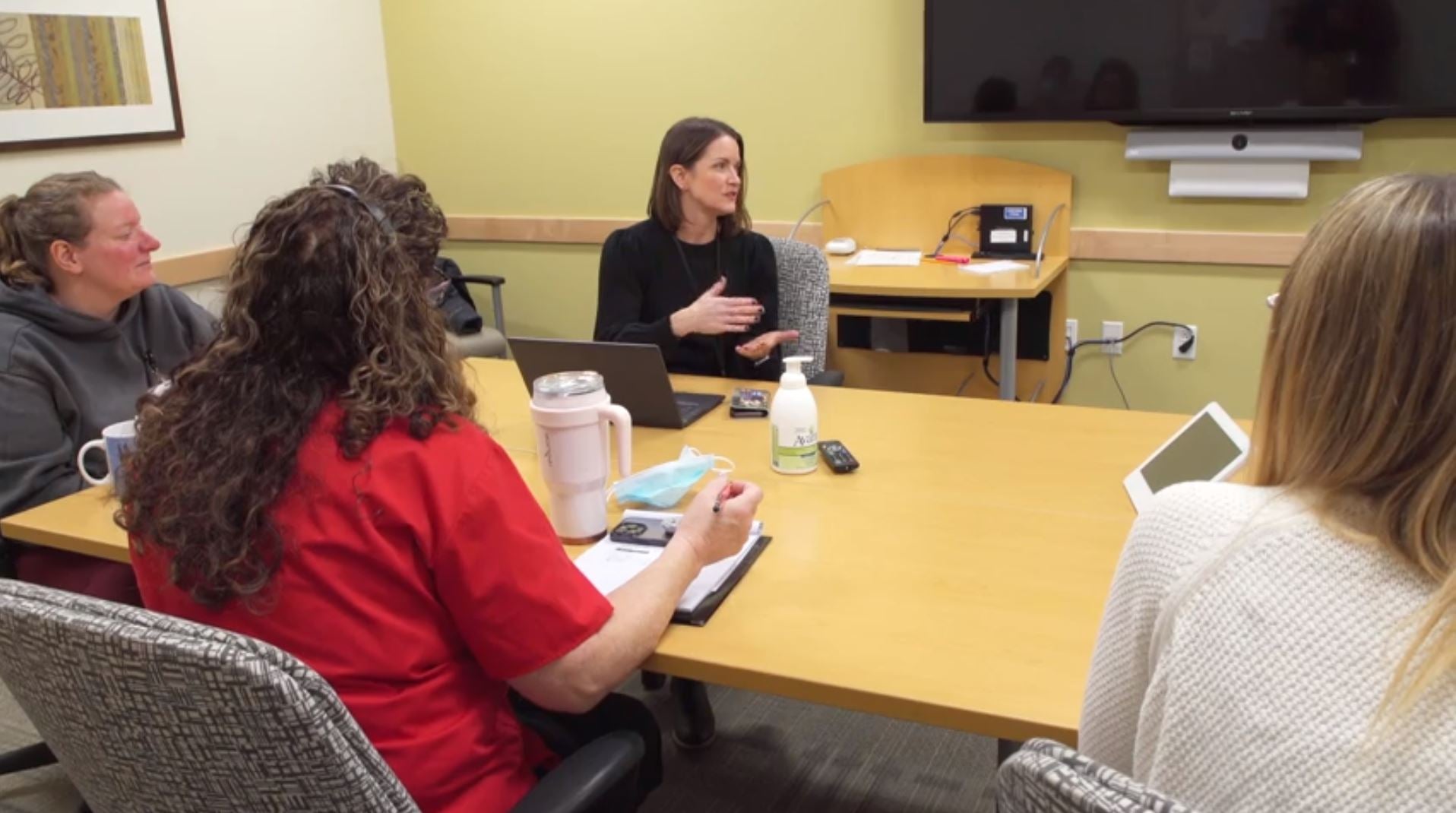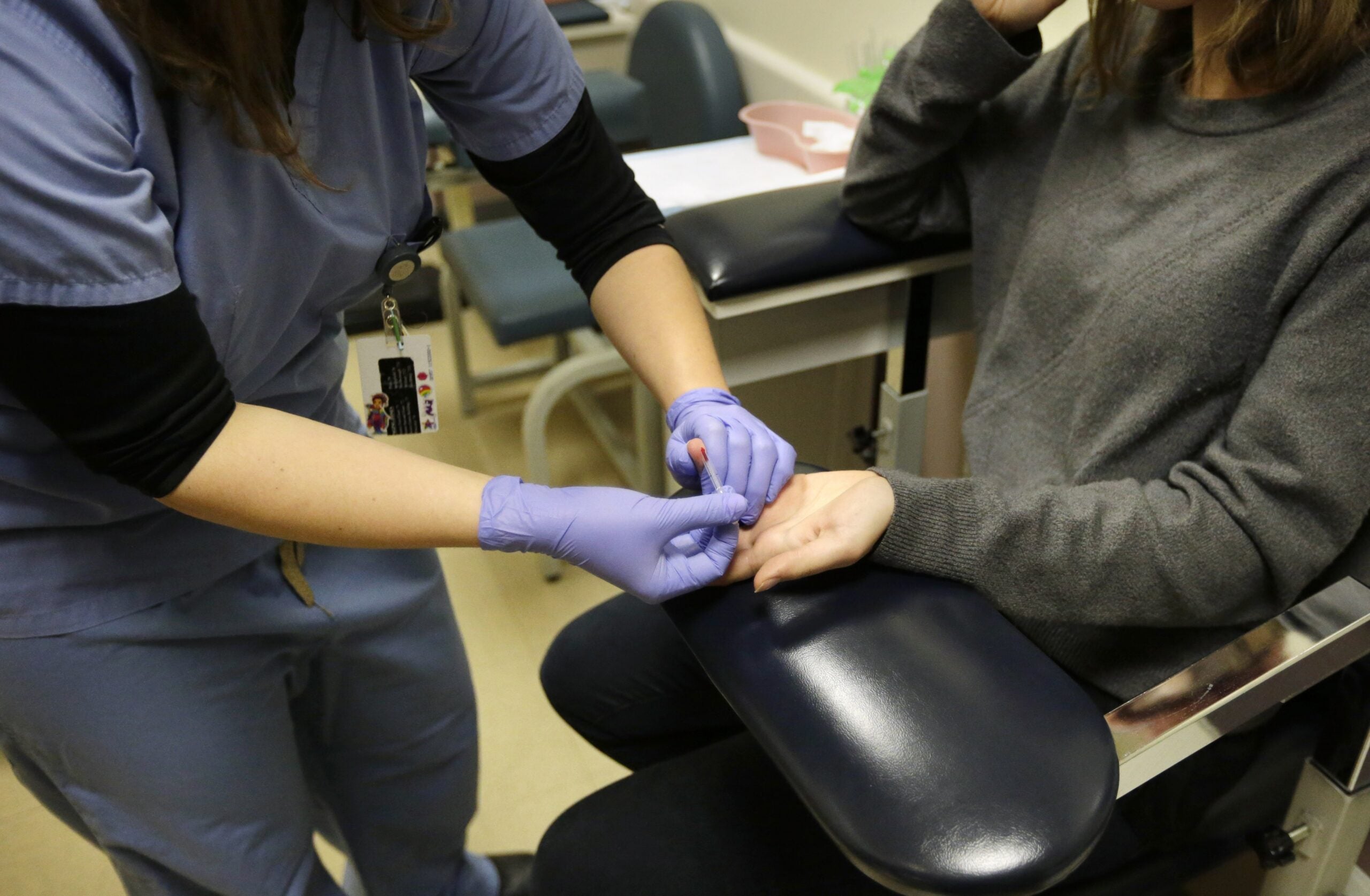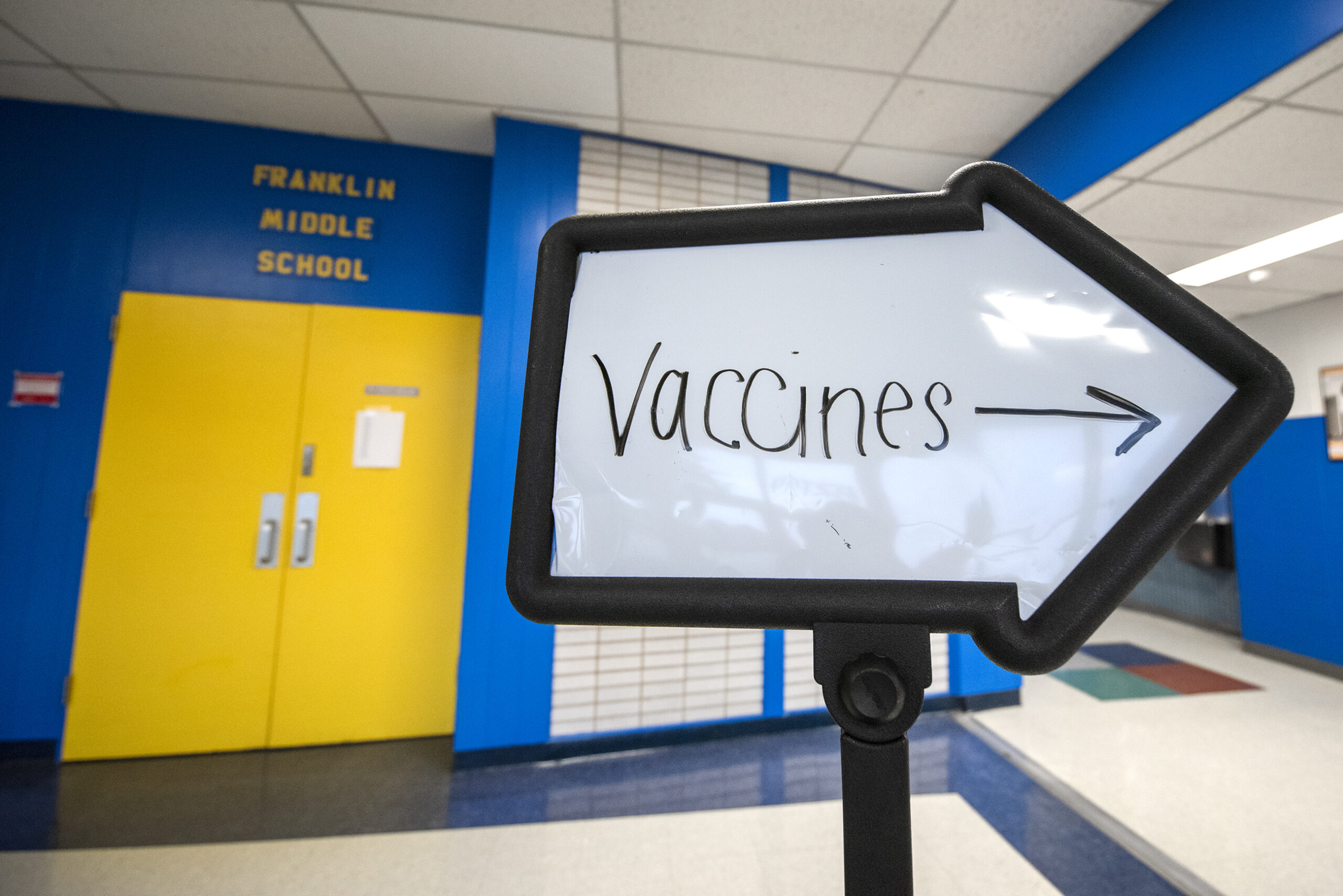The chief medical officer of the American Cancer Society spoke in Madison on Thursday on the links between disease and social variables like poverty and education.
Dr. Otis Brawley talked about disparities in cancer risk, screening and treatment because of gender, race and socioeconomic status.
“My old boss Sam Broder used to be fond of saying poverty is a carcinogen. Where we live, education, (and) diet all correlate with cancer risk,” he said.
Stay informed on the latest news
Sign up for WPR’s email newsletter.
Brawley also said access to care is a huge problem for many in the U.S.
“You’d be amazed the proportion of people who get less than optimal care because they cannot get a ride to the doctor.”
He said cancer deaths for all people decreased 22 percent between 1991 and 2012, mainly because of a decrease in smoking rates. But Brawley said obesity and lack of exercise increase risk for many cancers.
Brawly also touted the importance of education, calling it “incredibly powerful.”
“Many of the black-white disparities in the United States go away if you give all black men a college education,” said Brawley.
Brawley said education and prevention are important in maintaining health, and that third grade is a good place to start in terms of health education.
“Actually start teaching kids who are 7-8 years old how to eat, principles of exercise, principles of physical activity,” said Brawley.
According to the Wisconsin Comprehensive Cancer Control Plan, 53 percent of adults in the state get the recommended amount of exercise, and just 14 percent of adults eat at least five servings of fruit or vegetables a day.
Wisconsin Public Radio, © Copyright 2024, Board of Regents of the University of Wisconsin System and Wisconsin Educational Communications Board.

